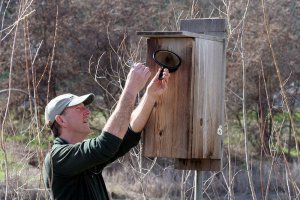 Hunting and conservation are two terms that most people would not associate. However, they could not be more wrong, especially when it comes to duck hunting. Yes, the hunters want to bag their limit every season, but they are also interested in protecting the habitats of the wildlife as well as controlling how much wildlife can be killed each season to ensure that the species is able to continue.
Hunting and conservation are two terms that most people would not associate. However, they could not be more wrong, especially when it comes to duck hunting. Yes, the hunters want to bag their limit every season, but they are also interested in protecting the habitats of the wildlife as well as controlling how much wildlife can be killed each season to ensure that the species is able to continue.
Hidden Support for Wildlife and Conservation
Wildlife services need significant funding every year to protect animals and the grounds they live and feed on. Some of the primary sources of these moneys are generated through the sale of hunting tags, stamps, and licenses. In addition, there is an excise tax on hunting supplies, such as rifles and ammunition. It is estimated that over $200 million is generated every year through these taxes that directly benefit national wildlife programs.
Duck Hunters Have Long Supported Conservation
Duck hunting and conservation is not a new subject. In fact, documented support can be traced back over a century ago. You see, back in the late 1800s and early 1900s, market hunters were depleting waterfowl populations. Various types of waterfowl were very common menu items in restaurants and these hunters had no problem filling orders. With no limits in place and nothing to protect the birds, thousands upon thousands of waterfowl would be killed in a single day for profit.
Duck hunters started noticing the declining populations and were immediately concerned that these practices would one day eliminate the species altogether. Hunters got together and started petitioning politicians to create legislation that would protect waterfowl and the natural habitats. Laws such as the Lacey Act and the Weeks-McLean Act were a direct result of the pressure duck hunters were putting on politicians at the time.
How Duck Hunters are Helping Waterfowl and Habitats Today
Duck hunters today are just as interested in protecting the species and its natural habitat as their predecessors over a century ago. Hunting clubs, such as the Golden Triangle Duck Club, purchase lands and keep them in their natural state. The owners of these lands work and plant them just as any farmer would do. The grounds provide natural shelter and feeding grounds for the waterfowl during the migratory season.
There are also conservation groups formed specifically to protect waterfowl and its natural habitats, such as Ducks Unlimited. With its main office in Washington, D.C., DU works with politicians to ensure legislation is in place for things such as restoration of watersheds and grasslands as well as working with existing landowners and acquiring available land that is a natural habitat for waterfowl.
Restoration Benefits
Grasslands are vital to ensure that waterfowl are able to continue to populate. Ducks will create nests in these areas and hatch their eggs there. Once born, the ducklings are taken to the wetlands to grow into adults. The grassy cover protects the birds during this critical time. However, if these lands are destroyed, it is less likely the eggs will survive to hatching or that the young ducklings will be able to survive the early stages of their lives.
Watersheds also play a significant role in protecting waterfowl. If watersheds are destroyed or disturbed, contaminants and other elements find their way into the wetlands and negatively affect the area. By restoring watersheds, wetlands that have been destroyed or damaged can also be restored to provide feeding and protection for waterfowl.
Landowners Protecting Our Natural Habitats
One may think that most of the habitats and breeding grounds for waterfowl are on protected government lands, but that is not the case. In fact, about three quarters of all habitat lands for waterfowl are privately owned. Luckily, a significant portion of that land is controlled by duck hunting enthusiasts, clubs, or owners that have partnered with conservation groups to keep these lands protected so the land can continue provide shelter and food for the waterfowl population.
If there are areas of land that have become depleted or destroyed, groups like Ducks Unlimited will sometimes try to purchase the lands and restore them back to a natural habitat for waterfowl. When the lands have been restored, they are often donated to government agencies or private conservation groups to be maintained and continue to serve its natural purpose.
So, as you can see, duck hunters are more than a group of guys lying around in mud trying to kill birds. In most cases, they are just as enthusiastic about protecting waterfowl habitats as they are about duck hunting. With any luck, that enthusiasm will continue for many years to come and the waterfowl population will continue to grow.






